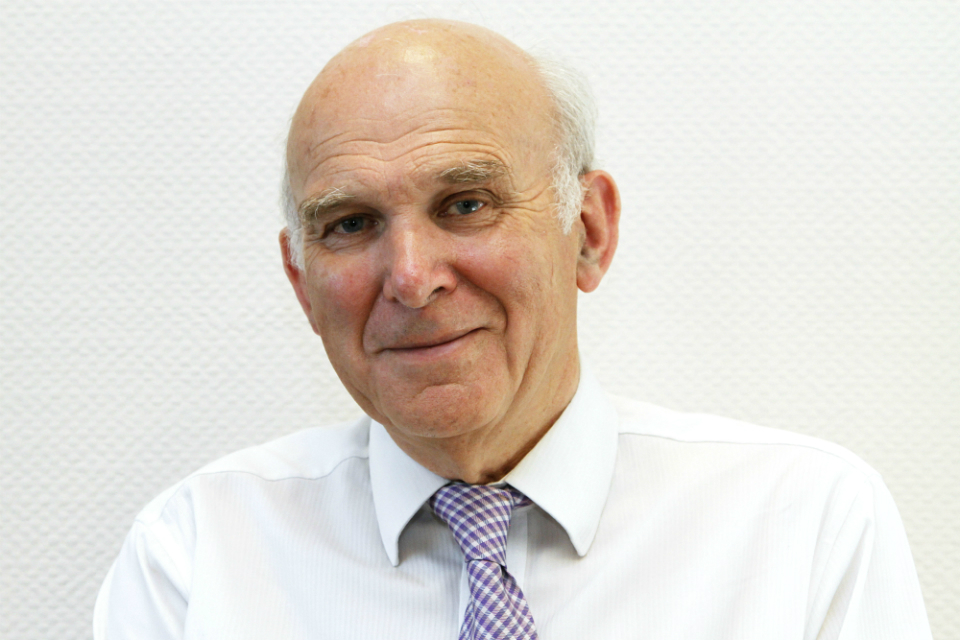UK and Japan standing together for recovery and growth
I am delighted to be in Japan. Last July the British Foreign Secretary, William Hague, underlined in this very room his determination to give…

I am delighted to be in Japan. Last July the British Foreign Secretary, William Hague, underlined in this very room his determination to give relations with Japan the importance they deserve.
In a year when we’ve worked together closely on a range of international issues I want to reaffirm the importance of that relationship.
Everyone in the UK was deeply moved by the disasters of 11 March and by the very courageous and stoical response of the Japanese people. The UK government was pleased to be able to send assistance.
There has been regular PM to PM contact by phone and in person, but I am the first Cabinet Minister to visit since 11 March.
The whole world has been impressed by the speed of recovery; many challenges remain. The UK wants to help.
In the short term the priority is to get business back on track to normality. The UK Government and industry want to signal that Japan is an entirely safe place and a good place to do business.
I am accompanied by business delegation which will spread the word that this is a good place to do business and it’s open, and yesterday UKTI and British Airways launched a campaign to encourage renewed trade and investment interchange between our countries.
In the medium and longer term we want to encourage companies and our Government to aid reconstruction and recovery, including of the nuclear situation, where the UK has particular expertise.
And I look forward to the publication of reconstruction strategy later this month. This is an opportunity for Japan to show the way in creating a sustainable, low carbon society and economy.
This morning I was talking to Japanese companies about smart city and the technologies embedded in that.
We are confident that Japan will emerge stronger than ever. The UK is also facing major economic challenges. Their origins are very different but have some common elements; we also had property and land price bubbles that burst and bank failures. We can learn from these common experiences.
The first priority of our new Government in the UK has been to stabilise the country’s finances and bring them back into the red. Beyond that to rebalance the economy, with greater emphasis on private investment, exports and manufacturing.
Our response is also to embrace openness to trade and investment and we have adopted a Growth Strategy committing us to a free trading, pro-business regime.
We want to apply this philosophy across government: a positive outcome for Japanese business of recent visa policy changes is evidence of this - we exempted intercompany transfers from the controls.
Japanese investment continues to play a central role in the UK’s economy.
I recall 30 years ago I was a junior person in the Department where I am now a minister, there was a big controversy over Japanese investment. But we made the decision to welcome Japanese companies into the UK and it was one of the best decisions we made. Those companies brought good technology and management to the UK and transformed the British car industry among others.
We have met many companies this week and reaffirmed our desire to work in partnership to create the low carbon infrastructure the UK needs. We have the same objectives in terms of our environmental objectives and energy supply. We see particular potential in low carbon vehicles and low carbon power generation.
To support this policy, last week I launched the Green Investment Bank with £3bn of Government money to support low carbon projects. And I also announced a Technology Innovation Centre for renewable energy - off-shore wind, wave and tidal power - to be a centre of research excellence.
I want to encourage Japan to pursue the path of an open economy.
The UK supports Japan’s aspirations for an Economic Integration Agreement with the EU and our Government led by Prime Minister David Cameron intervened actively with EU counterparts to promote this idea.
Action is now in Japan’s hands in areas such as transparency, public procurement and clarity over regulation. Difficulties already presented by Japan’s unique standards demonstrate the benefits of coming closer into line with global standards.
We do understand that there are public opinion and government concerns. But deregulation benefits all. We estimate that if the EU-Japan EIA were concluded it could generate 100bn Euros in trade in both directions.
We are very pleased to see the progress Japan has already made on opening up and welcoming foreign investment - tax breaks, and some liberalisation of immigration.
We urge you to continue on this road: British experience shows that foreign investment brings knowhow, technology and productivity and is altogether desirable.
If I can conclude, both countries do have immense challenges. The response for us both should be the same: openness, liberalisation, a business friendly environment and the active pursuit of low carbon future.
By standing together as friends and business partners we can achieve the recovery and growth that our people deserve. Thank you.